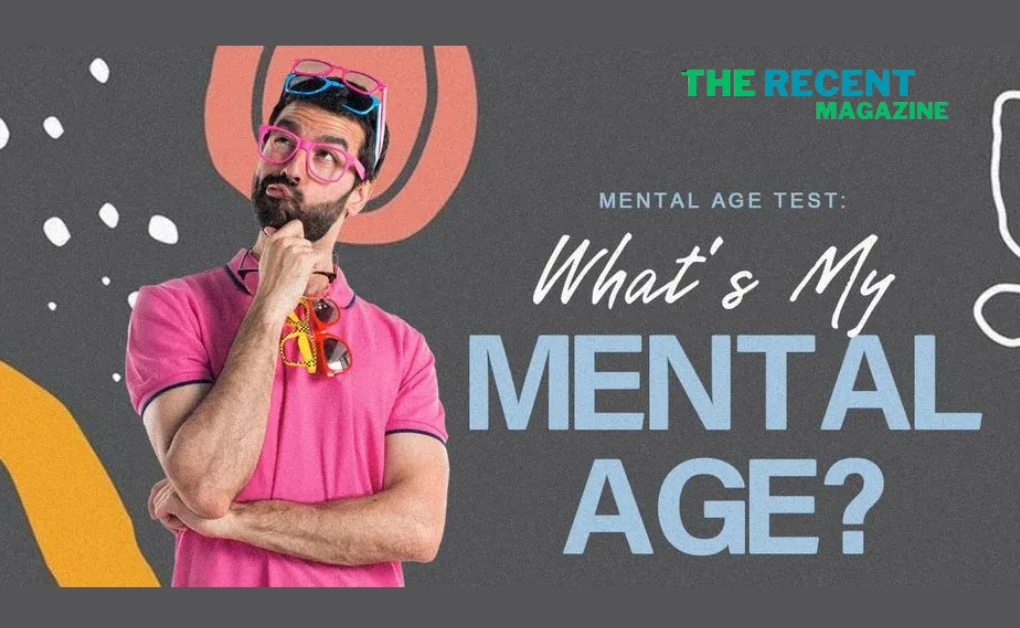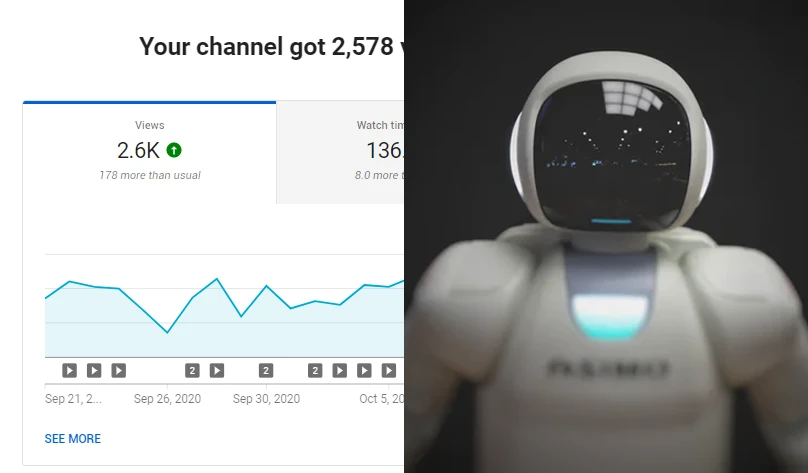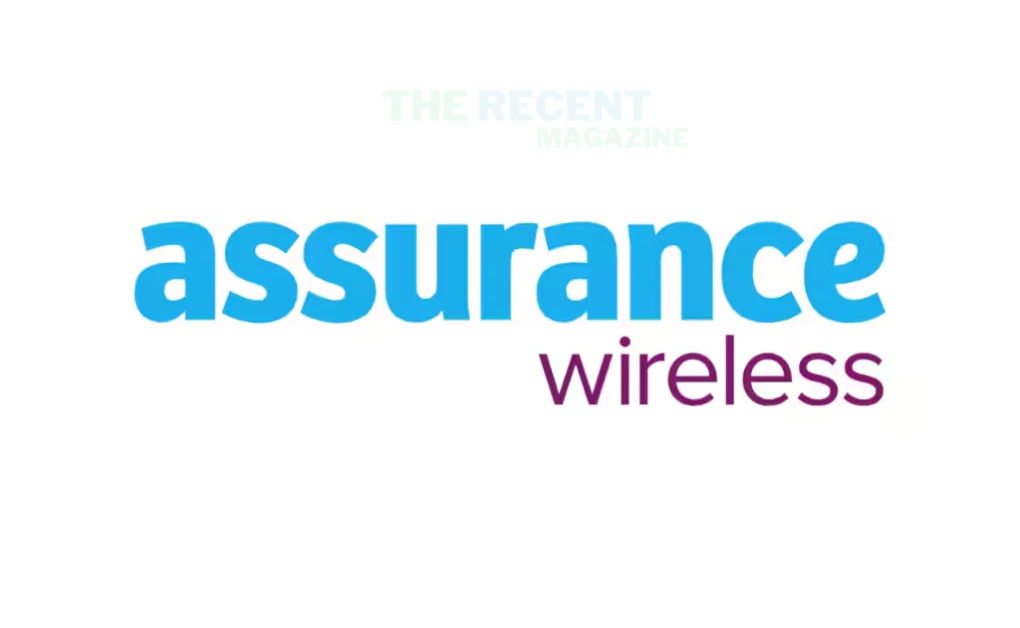Now Reading: Mental Age Test: Unlock Your Inner Potential
-
01
Mental Age Test: Unlock Your Inner Potential
Mental Age Test: Unlock Your Inner Potential

Have you ever wondered if your mental age matches your chronological age? Maybe you feel more youthful in your thoughts or perhaps wiser beyond your years.
A mental age test can reveal fascinating insights about how you perceive the world and process information. Imagine discovering that your mind dances to the rhythms of a different age, helping you understand your unique approach to life. You’ll explore how mental age tests work and what they can tell you about your personality and cognitive style.
Get ready to unlock a new layer of self-awareness that might just surprise you!
What Is A Mental Age Test
Understanding your mental age can be a fascinating journey. It gives you insight into how your mind works, often revealing surprising aspects of your personality. A mental age test is a tool that measures how you think and perceive the world, compared to your chronological age. But what exactly is this test, and how can it benefit you?
What Is A Mental Age Test?
A mental age test assesses your cognitive abilities and emotional maturity. It’s like a mirror reflecting your mental growth, irrespective of your actual age. This test evaluates your problem-solving skills, emotional responses, and overall mindset.
Imagine you’re 30 years old, but your mental age is 25. This could mean you have a youthful outlook, often associated with creativity and openness to new ideas. On the other hand, a higher mental age might suggest wisdom and maturity beyond your years.
Some tests involve answering questions about everyday scenarios or preferences. Others might include puzzles or logic problems. These tests aim to uncover how you handle challenges and make decisions.
Why Should You Take A Mental Age Test?
Taking a mental age test can be enlightening. It can help you understand why you relate better to people of different ages. You might discover hidden strengths or areas for improvement in your thinking process.
Have you ever wondered why certain tasks feel easy while others are challenging? Your mental age might explain this. It can guide you in choosing activities that suit your mental abilities, enhancing your productivity and satisfaction.
How Accurate Are Mental Age Tests?
Accuracy varies with each test. Some are more scientific, while others are for fun. It’s essential to approach these tests with an open mind. Understand that they provide a snapshot, not a definitive measure of your intelligence or capabilities.
Consider taking multiple tests for a broader perspective. Compare your results and reflect on the insights they offer. This can be a rewarding exercise that deepens your self-awareness.
What Can You Learn From Your Mental Age?
Your mental age can reveal fascinating aspects of your personality. Are you more innovative or more structured in your thinking? Do you prefer routine or spontaneity? These insights can help you navigate personal and professional relationships.
Understanding your mental age can also help in setting realistic goals. It’s a valuable tool for personal growth, showing where you might need to adapt or embrace change.
Consider sharing your results with friends or family. It might spark interesting conversations and deepen your connections with others.
In the end, the mental age test is a fun and insightful way to explore your mind. Are you ready to see what it reveals about you?
Historical Background
The concept of mental age has intrigued psychologists for decades. It seeks to measure cognitive abilities compared to an average age group. This idea helped shape intelligence testing, influencing educational and psychological practices. Understanding its historical roots enhances our grasp of mental age tests today.
The Birth Of The Mental Age Concept
The mental age concept originated in the early 20th century. French psychologist Alfred Binet introduced it in 1905. He developed it to identify children needing special education. Binet’s work laid the foundation for future intelligence tests. His approach focused on practical problem-solving skills.
Alfred Binet’s Contribution
Binet believed intelligence was not fixed. He argued it could be improved with education. He created tasks to gauge children’s mental abilities. These tasks assessed memory, attention, and problem-solving. Binet’s method marked a shift from rigid intelligence views.
Development Of The Iq Test
Lewis Terman, an American psychologist, adapted Binet’s ideas. In 1916, he introduced the Stanford-Binet Intelligence Scales. This test incorporated the mental age concept. Terman’s version became popular in the United States. It was used to assess children’s intelligence levels.
Legacy And Impact
The mental age concept influenced various fields. It shaped educational policies and practices. It also sparked debates on intelligence and measurement. Today, it remains a vital tool in psychological assessments.
Benefits Of Mental Age Testing
Mental age testing offers several benefits for personal growth. It helps individuals understand their mental maturity. This knowledge can guide personal and educational development. Understanding your mental age can improve self-awareness. It can also help in creating better learning strategies. Let’s explore these benefits further.
Self-awareness And Growth
Mental age tests reveal how you think and feel. They show your mental strengths and weaknesses. Knowing this helps in self-reflection. You can understand how you react to different situations. This awareness leads to personal growth. It helps in making informed decisions about your life.
Personal Development Insights
These tests provide insights into your personal development. They help identify areas for improvement. You can focus on enhancing your mental skills. This insight is useful for setting realistic goals. It helps in planning your personal and professional life better.
Tailoring Learning Strategies
Mental age tests help tailor learning strategies. They provide a clearer picture of your learning needs. You can choose educational methods that suit your mental age. This ensures more effective learning. It also reduces frustration in learning new skills.
How Mental Age Is Measured
Understanding how mental age is measured helps grasp cognitive development. Mental age reflects cognitive abilities, maturity, and emotional intelligence. Various methods assess mental age to provide a comprehensive view. These methods include psychological assessments, cognitive skill evaluations, and emotional intelligence factors.
Psychological Assessments
Psychological assessments offer insights into an individual’s mental age. They evaluate mental processes and problem-solving abilities. These tests often involve questions on logic and reasoning. They measure how well a person understands and processes information. Results reveal strengths and areas needing improvement.
Cognitive Skill Evaluation
Cognitive skill evaluation focuses on mental abilities. It examines memory, attention, and perception. These assessments identify strengths in thinking and understanding. They gauge how quickly and accurately a person solves tasks. This helps determine age-related mental capabilities.
Emotional Intelligence Factors
Emotional intelligence factors play a role in measuring mental age. They assess how well a person manages emotions and social interactions. Understanding one’s own emotions is crucial. This includes empathy and social skills. Emotional intelligence influences decision-making and relationships. It reflects a person’s maturity and emotional development.
Popular Mental Age Tests
Mental age tests help people understand how their thinking aligns with different age groups. These tests are fun and often reveal surprising insights. Many people enjoy discovering how their mental age compares to their actual age.
Understanding your mental age can be both fun and enlightening. It offers a glimpse into how your mind processes information compared to your actual age. There are various methods to determine this, each with its unique approach. Let’s dive into some popular mental age tests you might find intriguing.
Online Quizzes
Online quizzes are a quick and entertaining way to gauge your mental age. They’re accessible, often free, and can be completed from the comfort of your home. Websites like BuzzFeed and Playbuzz host a variety of these quizzes, each with different themes and questions. These quizzes often ask about your preferences, habits, and reactions to situations. They aim to provide a snapshot of your mental age with immediate results. Have you ever taken one and found the results surprisingly accurate or hilariously off-mark?
Standardized Tests
Standardized tests offer a more structured approach. They are designed by psychologists to assess various cognitive abilities. Tests like the Wechsler Adult Intelligence Scale (WAIS) evaluate factors such as logic, comprehension, and problem-solving skills. These tests are typically administered in a controlled environment, ensuring accuracy and reliability. While they may not be as spontaneous as online quizzes, they provide a deeper understanding of your cognitive abilities. If you’re curious about your mental faculties, consider taking a standardized test for a comprehensive analysis.
Interactive Apps
Interactive apps bring a fresh twist to mental age testing. They combine technology and psychology to create engaging experiences. Apps like Lumosity and Elevate offer games designed to challenge your brain and evaluate its capabilities. These apps track your progress over time, offering insights into how your mental age might evolve. They can be a fun way to keep your brain active while also gaining insights into your mental prowess. Have you ever used an app that made you rethink your cognitive strengths and weaknesses? Each method offers unique insights into your mental age. Whether you prefer the spontaneity of online quizzes, the depth of standardized tests, or the interactivity of apps, there’s something out there for everyone. Which method will you try next to uncover your mental age?
Interpreting Mental Age Results
Understanding your mental age can be fascinating. It’s not about your actual age. Mental age reflects how you think and feel. It can provide insight into your personality and cognitive abilities. Interpreting these results can help you learn more about yourself.
Understanding Your Score
Your mental age score shows how your mind works. It might be higher or lower than your real age. This score can reveal your cognitive strengths and areas for improvement. A higher score often indicates maturity and wisdom. A lower score might suggest creativity and playfulness. It’s important to see your score as a tool for self-awareness.
Comparing With Chronological Age
Comparing your mental age to your actual age can be enlightening. A mental age higher than your chronological age can suggest advanced thinking. It can also mean you’re emotionally mature. If it’s lower, you might enjoy spontaneity and creativity. This comparison helps in understanding how you perceive the world.
Identifying Strengths And Weaknesses
Your mental age results can highlight strengths. They can show areas where you excel. It might be problem-solving or emotional intelligence. They can also reveal weaknesses. You may need to improve focus or decision-making skills. Recognizing these can guide personal development and growth.
Limitations And Misconceptions
Many people think mental age tests show intelligence. This belief is wrong. These tests often confuse age with maturity or skills. They have limits and can mislead about a person’s abilities. Always consider multiple factors when understanding someone’s mental capabilities.
Understanding the mental age test can be both intriguing and puzzling. Many of us are drawn to these tests, hoping to uncover something new about ourselves. However, it’s crucial to recognize the limitations and misconceptions that often surround them. Misunderstandings can lead to misinterpretations, and cultural and contextual factors further complicate the issue. Let’s delve deeper into these aspects to ensure you have a clear and accurate perspective.
Common Misunderstandings
Mental age tests can be fun, but they aren’t always accurate. People often think these tests measure intelligence, which isn’t true. They give a snapshot of your thinking style, not your IQ or capability. Remember that these tests are not scientifically robust. They’re designed for entertainment rather than serious assessment. If you rely on them too much, you might get a skewed view of yourself. Consider how these tests might oversimplify your personality. You are complex, and a short quiz can’t capture all of that. Reflect on your results with a pinch of skepticism.
Cultural And Contextual Factors
Cultural background can greatly influence test results. What seems smart or clever in one culture might not be in another. This can lead to misinterpretations of your mental age. Think about the context in which you’re taking the test. Personal experiences shape your responses. A person from a different background might answer differently, leading to a varied mental age. Language is another barrier. Non-native speakers might find questions confusing, affecting their scores. Always consider if the test is designed for your cultural and linguistic background.
Importance Of Professional Guidance
If you’re serious about understanding your mental age, seek professional advice. Psychologists have the expertise to interpret your results accurately. They can provide insights that a simple online test cannot. Professionals can help you understand the broader implications of your results. They can guide you in applying these insights to your personal growth. This is far more beneficial than relying solely on test scores. Consider discussing your results with a mentor or counselor. They can offer a balanced perspective and help you navigate your findings. This ensures you use the information constructively. Engaging with mental age tests can be insightful, but it’s essential to approach them with caution. Have you ever taken a test and wondered about its accuracy? By understanding these limitations, you’ll use these tools wisely, enhancing your journey of self-discovery.
Enhancing Your Mental Age
Enhancing your mental age involves more than just taking a test. It requires a commitment to lifelong growth and self-discovery. By engaging in specific activities, you can enrich your mind and emotions. This journey not only boosts your mental age but also enhances your overall well-being.
Cognitive Exercises
Cognitive exercises play a vital role in mental enhancement. They stimulate your brain and improve critical thinking. Simple puzzles and memory games can be very effective. They challenge your brain, keeping it active and sharp. Regular practice can improve your problem-solving skills.
Reading is another excellent exercise. It expands vocabulary and enhances comprehension skills. Try reading diverse genres to stretch your cognitive limits. It also encourages creative thinking and broadens perspectives.
Emotional Development
Emotional development is crucial for mental growth. Understanding your emotions leads to better decision-making. Journaling can help you explore your feelings. It provides a safe space for self-reflection. Writing about your experiences can reveal patterns in your emotions.
Mindfulness practices like meditation can also aid emotional growth. They promote inner peace and reduce stress. Practicing gratitude shifts focus to positive aspects of life. This shift can improve mood and emotional resilience.
Continuous Learning
Continuous learning keeps your mind engaged. It encourages curiosity and adaptability. Enrolling in online courses can introduce new subjects. They offer flexible learning options for different interests. Consider learning a new language to challenge your brain.
Attending workshops and seminars can also be beneficial. They provide opportunities for interactive learning. Staying updated with current events can expand knowledge. It helps you understand the world from different angles.
Future Of Mental Age Testing
The future of mental age testing is filled with promise and potential. As technology evolves, so do the methods and tools for understanding our mental capabilities. Imagine the possibilities when these tests are integrated into everyday life, from education systems to personal growth strategies. Are you ready to explore how mental age testing could change your world?
Technological Advancements
Technology is transforming mental age testing. With AI and machine learning, tests are becoming smarter and more personalized. Imagine taking a test that adapts to your responses in real-time, offering insights that are incredibly precise. These advancements make mental age testing more accessible and engaging.
Think about the convenience of digital platforms. You can now access mental age tests from your smartphone, making it easy to fit into your busy schedule. The future holds even more possibilities with virtual reality, where immersive environments could provide deeper insights into your mental processes.
Integration In Education
Schools are beginning to recognize the value of mental age testing. By integrating these tests into the curriculum, educators can tailor learning experiences to individual needs. Imagine a classroom where students learn at their own pace, guided by their mental age results.
Consider how this could impact standardized testing. Mental age testing offers a way to assess students beyond traditional exams, focusing on cognitive abilities rather than rote memorization. This could lead to a more inclusive and effective education system.
Potential For Personal Growth
Mental age tests offer a unique opportunity for personal development. By understanding your mental age, you can identify strengths and areas for improvement. How would it feel to have a roadmap for your mental growth?
Think about setting goals based on your mental age results. You could focus on enhancing cognitive skills, improving emotional intelligence, or even exploring new areas of interest. These tests provide actionable insights that empower you to take charge of your personal growth journey.
As mental age testing continues to evolve, what role will you play in its future? The possibilities are endless, and the choice is yours.
Frequently Asked Questions
What Mental Age Is An Iq Of 40?
An IQ of 40 corresponds to a mental age of approximately 6 years old. IQ scores measure cognitive abilities compared to age peers.
What Mental Age Is An Iq Of 80?
An IQ of 80 typically suggests a mental age slightly below the average for one’s chronological age. It often indicates mild intellectual challenges but varies individually. Understanding and support can help individuals reach their potential.
Is 40 A Good Mental Age?
A mental age of 40 can indicate maturity, wisdom, and emotional stability. It suggests experience in handling complex situations. Mental age varies by individual, reflecting one’s cognitive abilities and emotional intelligence. Consider personal growth and adaptability when evaluating mental age significance.
What Is The Mental Age Of A 75 Iq?
IQ scores do not directly translate to mental age. A 75 IQ suggests below-average intelligence, but mental age varies individually. Consult a psychologist for precise assessments.
Conclusion
Discovering your mental age can be intriguing and fun. It offers insights into your personality and thought patterns. This test isn’t about right or wrong. It’s about self-awareness. It helps you understand your mindset better. Reflect on your results and their meanings.
Share your experiences with friends. Discussing can lead to more insights. Remember, age is just a number. Your mental age shows how you see the world. Take the test, enjoy the journey, and learn about yourself. Each insight can guide your personal growth.
Stay curious and keep exploring your mind.
You can also read more in this article New Medical Technology Set to Transform Patient Health Care






















